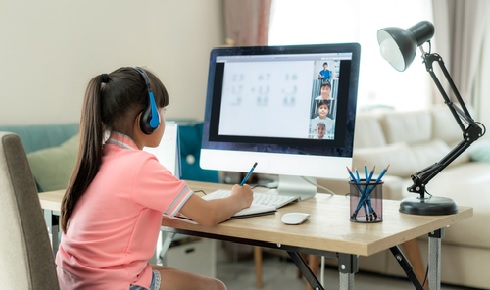"The message is clear: no-one should be disadvantaged by this disruption to their education"

The RSB's head of education policy Lauren McLeod looks at the way science education might change and even improve following the extensive disruption this year
June 5th 2020
Over a single weekend in March UK schools saw a drastic shift in expectations of their role in the community. Pupils were sent home and summer exam season was cancelled. Some teachers are now working at home, while others are still at school providing support for key workers and those entitled to free school meals. Some will be able to conduct classes online, but others may need to contact pupils with no computer or internet access at home. Both teachers and pupils are likely to have new caring responsibilities, and may have fallen ill themselves.
Pupils’ and students’ experiences of science during this period will be vastly different from that of previous cohorts with access to classrooms, lecture halls, workshops and laboratories. Younger school pupils with scientifically engaged parents may be doing home experiments, but older students will be missing out on practical skills in the classroom, or the university laboratory classes that train them in processes required for future courses or employment.
We must ensure young people affected are further supported in the next stage of their education, and that we re-engage and inspire pupils and students in science when they return to classrooms and laboratories. The devolved nature of education in our country has led to different approaches in how grades will be awarded this year, but the message has been clear from all: individuals should not be disadvantaged by this unusual disruption to their education.
For universities and employers, this means qualifications awarded this year should be considered no different to previous years – the mechanisms used to calculate and award grades are intended to ensure comparability between previous and future cohorts. However, we are faced with many challenges for next year’s school pupils, undergraduate and postgraduate students, trainee teachers and newly qualified teachers.
 Both students and teachers have had to adjust to working from home during the Covid lockdown
Both students and teachers have had to adjust to working from home during the Covid lockdownIn higher education, late admission and clearing for undergraduates may need to be considered if an autumn exam series in England goes ahead. Universities may choose not to open until the second semester of the academic year, in January 2021, to aid social distancing. Decisions taken now will impact not only this year’s graduating cohorts, but those sitting post-16 exams and moving through undergraduate degrees.
It also raises the possibility of new ideas: can calculated grades become the norm, freeing up more time for practical and non-examinable content? Should we reduce the breadth of content in qualifications at 16? And how can we best deploy our teachers and use their expertise?
In the coming months the RSB’s education policy team will continue to engage with governments, awarding bodies, regulators and our colleagues in other science organisations to further identify areas that require support and to build resilience in education. This will ensure all students and teachers are able to develop in times of emergency and when we return to learning and teaching in more traditional settings.
Lauren McLeod is head of education policy at the RSB


